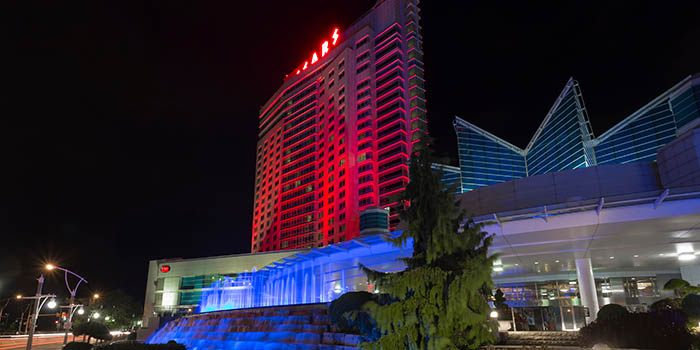Virginia’s City of Richmond Hopes Tax Cuts Will Sway the Public on Casino Bid

The city of Richmond, VA, was shocked and a little more than disappointed when local residents rejected a casino referendum last November. Not willing to give up the fight, the city is pulling out its bag of tricks to try to gain support. One of these tricks targets locals’ wallets.
Tax Breaks for Casino Support
Richmond Mayor Levar Stoney proposes a 2% reduction in the city’s real property tax rate to encourage voters to support a second casino referendum.
The Richmond City Council voted Monday night for another popular vote to allow the One Casino and Resort to go ahead after voters rejected its plans last November. This was in spite of the promise of $30 million in additional annual tax revenue, 1,500 new jobs, and a $25 million payment from the casino’s developer, Urban One.
Just hours before Monday’s council vote, the mayor’s administration had announced the tax reduction proposal. A spokesperson said that the tax cut would depend on approval by voters.
Prior to the City Council vote, Stoney said in a press release, “Our residents deserve tax relief and access to good jobs. They want public infrastructure improvements and more funding for school capital projects. This project provides a unique opportunity to do just that. I know City Council is committed to creating opportunities that uplift and support all Richmond residents, and I’m hopeful tonight’s vote affirms this shared commitment.”
New Battle Tactics
Stoney and others who support the Richmond casino project noted that election results were not based on racial or geographic lines. Precinct vote count data showed that majority-white precincts voted against the project by a 2-to-1 margin. In contrast, voters in South Richmond, which is dominated by Black residents, overwhelmingly voted for it. According to city election officials, 26,000 votes of the 77,000 were cast by mail before Election Day. This means that one-third were reported from a central location.
Many supporters pointed out that the project would be the first Black-owned casino in America when they pitched it last year. Stoney later told local media that some Black residents felt unloved after the rejection.
The legislation that was passed Monday will allow the city to partner again with Urban One and Peninsula Pacific Entertainment. These companies are the owners and operators of Colonial Downs racetrack and Rosie’s gambling emporiums. The resort’s plans remain essentially the same as they did before.
The city will not offer any tax breaks or incentives to the project.
Nearly unanimously, the council voted for a second referendum to appear on the ballot. Many members supported the tax cut proposal and challenged allegations that it was undemocratic. Katherine Jordan, the councilwoman who voted against the referendum last year, voted against it again Monday. She cited personal objections to gambling.
Erik brings his unique writing talents and storytelling flare to cover a wide range of gambling topics. He has written for a number of industry-related publications over the years, providing insight into the constantly evolving world of gaming. A huge sports fan, he especially enjoys football and anything related to sports gambling. Erik is particularly interested in seeing how sports gambling and online gaming are transforming the larger gaming ecosystem.














